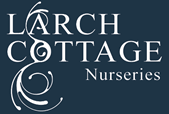Advice
Can I plant a new rose in the same place and soil as one I have just taken out?
Can I plant a new rose in the same place and soil as one I have just taken out?
What is replant disease and how does it affect roses?
Replant disease or disorder happens when a plant is replaced with the same type and then does not thrive or put on good growth. It is a recognised problem but one which is not well understood and particularly affects the re-planting of roses although other shrubs and trees can be affected.
The main symptoms which become apparent to the gardener are that the new plants struggle to establish, some might even die. If you compare a plant which is growing well in unaffected or sterilised soil with one which has been replanted straight into the old soil then the problems are easy to see. You will also find that the roots of the new plant will grow badly and the finer roots may well be rotten.
Which plants are frequently affected by replant disease?
Plants which are frequently affected by this are roses; citrus plants, apples, peaches, plums on St Julien rootstock, quince or cydonia and both edible and non edible cherries. Occasionally affected are Pinus, raspberries, strawberries and vines.
What do I do if my plant is affected by Replant Disease? If your plant is affected then lift it, shaking off the soil and replant it in another site where the species has not been grown before and you may find that the plant will often recover
There are a number of steps to follow if you wish to avoid replant disease:
1: Swap the soil with fresh soil from another part of the garden. Typically this involves digging a hole a few cm larger than the full spread of the roots
2: Use a cardboard box to line the hole with the bottom removed, the roots will be established by the time the box rots away
3: Apply fertiliser high in nitrogen to help boost the plant growth
4. Apply the rootgrow to the planting hole to counteract problems
5. Incorporate well rotted manure or organic matter and back fill the hole and firm around the roots, water well.
Some rootstocks have better resistance than others; Roses on rosa laxa, apples on M27, Cherries on Colt and plums on Myrobalan B seem to show better resistance than others.
How to avoid replanting disease.
One way to avoid replanting disease is to use a Mycorrhizal product, which is effective in counteracting replant problems. Here at Larch Cottage we recommend a product ‘rootgrow’ which is manufactured under license by the Royal Horticultural Society and helps overcome replant problems with plants establishing a vigorous root system which will support them for their lifetime as well as helping them be better able to cope with the conditions of drought.
Our roses are available to buy on-line visit our rose section to find out more


Comments are closed.